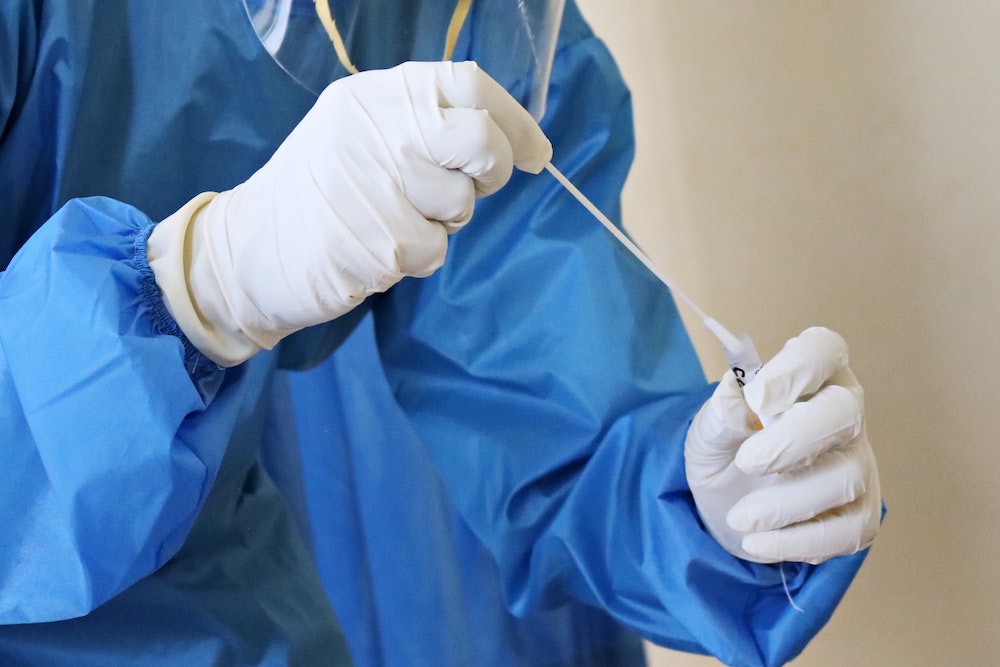Have recent headlines left you confused about which medicines, if any, you can take to treat COVID-19 (coronavirus)?
COVID-19 illness varies in seriousness, from people who have no symptoms at all (asymptomatic) to those who become critically unwell.
Most people, however, will have mild symptoms, and can get better at home without medical care. Read on to learn how to look after yourself at home, what painkillers you can use, and if there are any other COVID-19 treatments available.
How to take care of yourself at home
If you’re looking after yourself at home, you should keep an eye on your symptoms.
Managing symptoms of COVID-19
The main symptoms of COVID-19 are:
- high temperature (fever)
- dry cough
- loss of or change in your sense of smell and/or taste
To treat a fever, get lots of rest and drink plenty of fluids (water is best) to stay hydrated. You can take common painkillers (see below for details) if you’re uncomfortable.
To help with a cough, avoid lying on your back – lie on your side or sit upright instead. A teaspoon of honey can be soothing (but don’t give honey to babies under a year old), or ask a pharmacist about cough treatments.
You should also follow the relevant advice in your country about staying at home (self-isolating) if you have COVID-19 – which may include not visiting a pharmacy.

When to seek medical advice
You should get medical advice if you:
- feel like you can’t manage your symptoms at home
- feel breathless and it’s getting worse
- think your symptoms are getting worse
Always phone ahead before visiting a medical centre in person to let them know you have, or may have, COVID-19.
When to seek emergency medical help
You should get emergency medical help if you:
- have trouble breathing
- have persistent pain or pressure in your chest
- become confused
- can’t wake up or stay awake (feel drowsy)
- have blue-ish lips or face
- are coughing up blood
- feel cold and sweaty, and your skin is pale or blotchy
- have a rash that doesn’t fade when you roll a glass over it
- collapse or faint
- have stopped peeing, or are peeing much less than usual
- have any other symptoms that are severe
Call your country’s dedicated emergency line and let them know you have or may have COVID-19.
Which painkiller: Ibuprofen or paracetamol?
Both paracetamol and ibuprofen are common painkillers that can be used to manage some of the common symptoms of COVID-19, such as fever, cough and aches and pains.
The guidance around which is best to take when these symptoms are caused by COVID-19 has been conflicted.
The Healthily Chief Medical Officer, Prof Maureen Baker, explains, 'Earlier on in the pandemic, there were reports that ibuprofen shouldn’t be used (was contra-indicated) for COVID-19. However, subsequent work has shown that ibuprofen is safe to use for COVID-19 – unless there are other reasons it shouldn’t be used (such as if you have asthma or peptic ulceration).'
The World Health Organization (WHO) now says that, based on currently available information, it ‘does not recommend against the use of ibuprofen.’ This is because it’s ‘not aware of any negative effects of ibuprofen beyond the usual known side effects.’ (These side effects include headaches, dizziness and indigestion.)
The advice in the UK is that people try paracetamol first if they can, though, as it generally has fewer side effects than ibuprofen and is the safer option for most people.
Ibuprofen is a type of non-steroidal anti-inflammatory drug (NSAID) that is used to treat pain, inflammation and fever. Many people use these to treat other conditions, such as arthritis or chronic pain. If you take NSAIDs to treat an ongoing condition, don’t stop taking them without speaking to a doctor.
Ibuprofen is not suitable for everyone so you should discuss it with your doctor or pharmacist before using it.

Should I try other medicines being trialled as COVID-19 treatments?
In short, no. Any medicines can be dangerous especially if not prescribed by a healthcare professional.
However, a number of drugs have already been trialled for COVID-19 in different countries, and in a large clinical trial, led by the WHO. Further drugs are currently being trialled.
Some of the drugs that have already been trialled include chloroquine, which is used to prevent malaria, and lopinavir and ritonavir (sold under the brand name Kaletra), which are used to treat HIV. The WHO stopped these trials, however, as the results showed they didn’t reduce deaths among people hospitalised with COVID-19.
An antiviral drug called remdesivir has also been trialled. The WHO advises against its use, saying there isn’t any evidence it improves survival rates for COVID-19. In the US, however, the Food and Drug Administration (FDA) has approved it for people who are over a certain age and weight and require hospitalisation, as well as issuing what’s called an ‘emergency use authorization’ (EUA) for other groups of people.
The FDA has also issued an EUA for a rheumatoid arthritis drug called baricitinib, to be used with remdesivir, in people who have been hospitalised. In trials, this combination of drugs was found to reduce people’s recovery times. Baricitinib isn’t authorised as a treatment for COVID-19 on its own.
In the UK, dexamethasone and hydrocortisone are being used in hospital to treat people with severe or critical COVID-19. These are types of medicines called steroids (corticosteroids), which are already used to treat a wide range of other health conditions.
The UK government is also recommending the use of tocilizumab and sarilumab to treat patients in intensive care with COVID-19, after trials showed they improved both survival rates and recovery time. These drugs, which are already used to treat rheumatoid arthritis, have been found to reduce patients’ relative risk of death by 24%.
Prof Maureen Baker explains, 'Rheumatoid arthritis drugs such as tocilizumab and sarilumab work by moderating the excessive immune response (cytokine storm) that some patients have in response to COVID-19. They target a specific chemical involved in generating the excessive immune response, called Interleukin 6.'
Trials are also looking at a drug called colchicine, which is already used for gout. 'Colchicine is an old-fashioned and inexpensive medicine and may benefit people who get COVID-19 by reducing their chance of being admitted to hospital. The signs are encouraging but we’re still waiting for all those trials to be published at the moment,' Prof Maureen Baker says.
What about other treatments?
Other forms of treatment are also being trialled, such as the use of blood from people who have recovered from COVID-19 to help treat people suffering from severe forms of the disease.
The blood of recovered patients contains antibodies against the virus. These antibodies are found in the liquid part of your blood, known as plasma, and it's hoped that giving this plasma to people in intensive care could help them recover by boosting their immune system.
If you think you may have coronavirus, you can use our COVID-19 Symptom Mapper to check your symptoms and compare them with others around the world.
This should give you a better understanding of how the illness is affecting you and will help us to map the spread of the outbreak.






